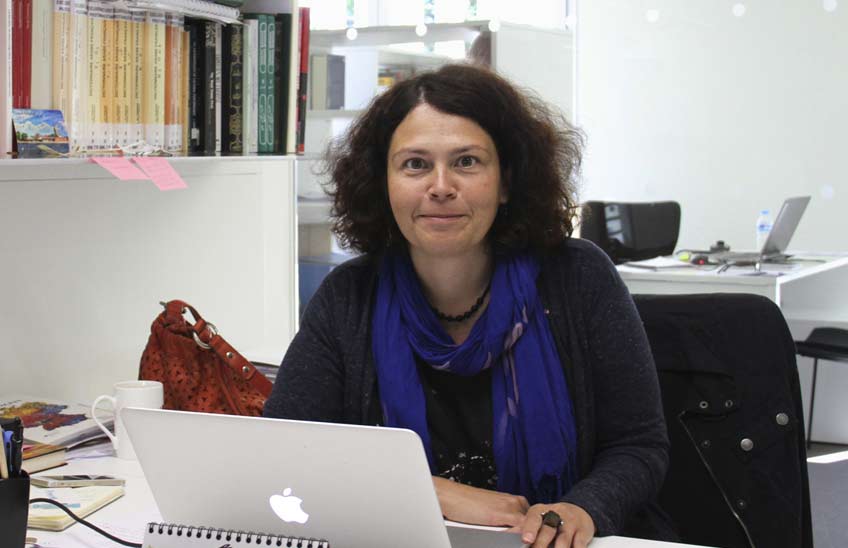"Getting to know migrants is the first step to their integration and social cohesion, but their voices are hardly heard"
Sarali Gintsburg, from the ICS of the University of Navarra, develops a project to better understand the identity of the 'new' Europeans through videos of vloggers of Algerian and Moroccan descent.

FotoManuel Castells/<br>Sarali Gintsburg
18 | 12 | 2020
"Getting to know migrants is the first step towards their integration and social cohesion, but their voices are hardly heard." This was stated today by Sarali Ginstburg, researcher at the project 'Public discourse' of the Institute for Culture and Society (ICS) of the University of Navarra and expert on the Arab world and the Middle East, at framework on International Migrants Day.
The expert pointed out that this is striking, given that migration to Europe has been a constant phenomenon for decades. According to her, the information that citizens usually receive comes from third parties, generally politicians and the press, and she warned that it is often approached with "a sensationalist tone". In this way, he pointed out that "we do not know their thoughts, feelings, plans, etc.", since only "what others think of them" is disseminated.
Sarali Gintsburg recalled that in Spain there has been a large influx of migrations from Morocco since the sixties and, currently, their descendants, third generations, live in the territory. "Theycannot be considered immigrants, but rather 'new' Europeans", he pointed out. However, he detailed that, although in this half century they have achieved cohesion with the autochthonous citizens, "we do not know what subject of integration they have achieved".
Direct communication channels between citizens
Through his research at ICS, Gintsburg seeks to better understand the identity of the 'new' Europeans by analyzing video blogs recorded by vloggers of Algerian and Moroccan descent. "This means listening to them directly and getting to know them better," he said. Thanks to the conclusions of this research, he hopes "tooffer local authorities strategies for communicating with them and thus contribute to their better integration into the society in which they have chosen to live".
However, for the researcher, networks are only a first approximation and that direct communication channels between citizens must be promoted: "The 'new' and 'old' Europeans must get to know each other". Along these lines, the EU interior ministers issued a joint declaration in November 2020 on the importance of a sense of belonging and equality for social cohesion. The document insists that "integration is a two-way street: that is, migrants are expected to make an active effort to integrate, while at the same time it is important that they receive financial aid to do so."
Looking ahead, Sarali Gintsburg is confident of easy integration of Arab immigrants in Europe, as she does not think they are so different from the local population. "In many countries it is very clear that minorities from Africa, the Middle East and Asia are legally European and participate in all aspects of public life," she concluded.
